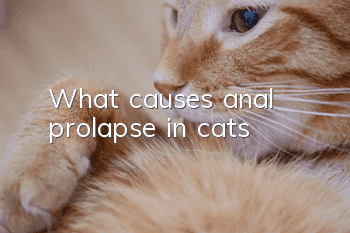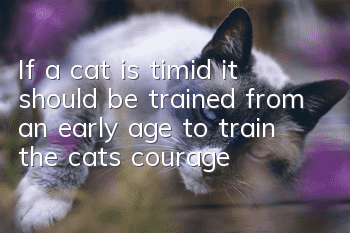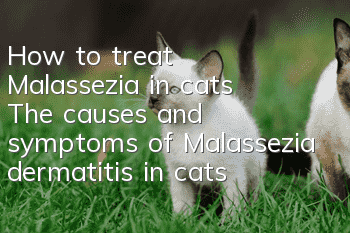What causes anal prolapse in cats?

Causes of anal prolapse in cats:
1. Primary disease: Diseases such as gastrointestinal infection can cause rectal inflammation and increase the volume of the mucosa.
2. Weakening of the anal sphincter: When cats lack nutrition or have physical diseases, the strength of the anal sphincter that closes the anus will be weakened. If the function is weakened, it will cause rectal overflow.
3. Parasites such as coccidia can cause long-term diarrhea, which can easily cause anal prolapse in cats.
4. Long-term constipation: When a cat is constipated, it will try its best to expel feces. At this time, the pressure on the abdomen is too great, which may lead to anal prolapse.
5. The cat’s strenuous efforts during childbirth may also cause excessive internal pressure in the abdomen, resulting in prolapse of the anus.
6. Breed reason: According to statistics, Manx cats are more prone to anal prolapse than ordinary cats.
Methods for treating anal prolapse in cats:
1. When a cat has anal prolapse, it must be put back into the abdominal cavity in time, otherwise it may cause necrosis of the prolapsed intestinal segment of the cat.
2. First flush the prolapsed intestinal segment with warm saline, and then insert the intestinal segment back into the abdominal cavity.
3. If it is caused by weakness of the cat’s sphincter, surgery is required to retract the prolapsed intestinal segment back into the abdominal cavity.
4. If the cat’s intestinal segment prolapses for too long, we need to go to the pet hospital for removal.
- What is the difference between Angora cat and lion cat?
- How to prevent cats from scratching walls? Get rid of cats’ bad habit of scratching walls with their claws!
- How to take care of a cat after neutering?
- How long does a pet cat generally live?
- The cat keeps meowing at night and scratching the door
- How to properly breed Siamese cats?
- How to train a naughty American Shorthair? The correct way to train an American Shorthair cat!
- Can cats eat seafood? Which seafood cannot be fed to cats?
- A few little secrets about the psychology and physiology of cats. How much do you know about them?
- What should I do if my cat doesn’t eat or drink when it first arrives at a new home?



